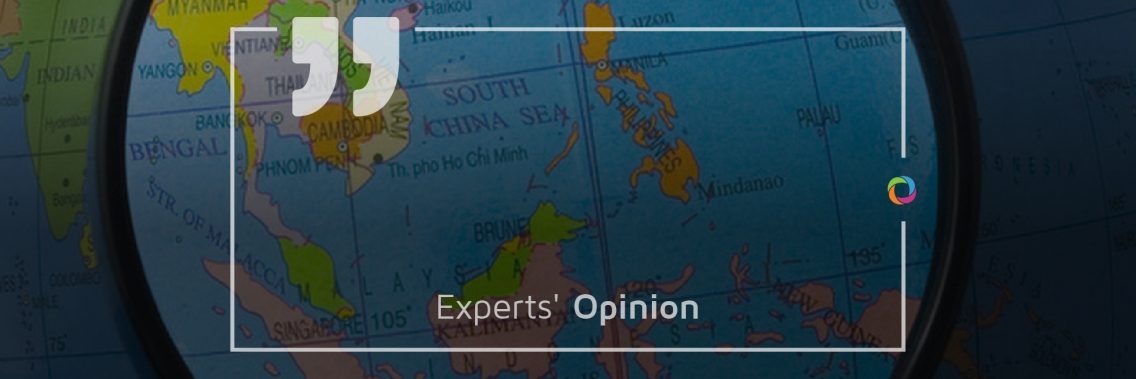When Singapore passed a law in 2019 that outlawed the spread of false information online, news outlets, companies and civil society organizations were quick to condemn this. The law empowers government officials to demand that corrections are placed next to social media and online posts that they deem to be false. What are the main consequences of this law, how it affects development aid in ASEAN and what can the international community do to counteract misinformation in ASEAN are the questions we have put to several law experts.
What are the main consequences of this law?

“The “Protection from Online Falsehoods and Manipulation Act, POFMA” will prevent freedom of speech on online platforms with authorities having unlimited power to dissipate social media views which it disapproves of. POFMA has been implemented to prevent falsehoods appearing on social media sites by checking bots, trolls and fake accounts. Banning the expression of general opinion using social media by alleging this is in the interest of peace and public interest will result in taking away the freedom of expression of citizens especially against government policies and performance. There will be general distress and fear among the people due to strict penalties and high fines.”

“The adoption of such laws poses a new threat to democracy and freedom of speech within a number of countries when populist leaders, relying on their supporters and followers in the network, try to influence domestic politics while limiting both the freedom of speech on social networks and access to the latter. This kind of misinformation is the most commonly used tactic. Many media outlets practice self-censorship, expressing empathy with their owners or advertisers, the latter being mainly the representatives of governmental entities and business communities. Meanwhile, online media tends to be more objective and impartial. In this case, with the adoption of such laws, people will simply cease to be free in their criticism of the authorities, even in private conversations and on the internet, because of being afraid of possible legal prosecution. The passed law may also lead to the massive use of fake accounts on social networks and media in order to manipulate public opinion. Users will resort to manipulation technologies including hybrid websites, ambiguous and ambivalent blogs, trolling, fake Facebook groups and even false information to criticize governments.”
Will this misinformation law change development aid in ASEAN?

“Although the POFMA has only been implemented in nine cases so far, some of these have been contentious, to say the least. This law has already affected an NGO from another ASEAN member state while encouraging another member state to follow suit. Singapore issued a correction notice to Lawyers for Liberty, a Malaysian human rights NGO, about a report on the method of execution for the death penalty. Liberty then filed a lawsuit against Singapore’s law and home affairs minister with the claim that the POFMA encroached on free speech in Malaysia. Because Liberty refused to amend the report, Singapore blocked access to the NGO’s website. This case sets a dangerous precedent for other NGOs that publish information that the Singaporean government is not comfortable with.”

“I think the misinformation law will have an impact on how development aid works online, at least in Singapore. There could be some positive outcomes as well. For example, ASEAN could cooperate in identifying specific needs among diverse groups of people, assets or interests and establish tailored programs and projects or other response mechanisms based on verifiable data which in turn could be used by development aid. The cooperation of various stakeholders will be instrumental in analyzing the opportunities and threats that this new law poses for the future given that the law has just been enforced.”

“The passed Misinformation Law is quite incapable of affecting any activities or operations of the development aid, even more so considering the fact that this platform has, inter alia, a clearly defined focus and bold guidelines. It is a well-known fact that the activities mentioned are related to assistance in finding employment, exchange of experience and professional development, all of these supported internationally and worldwide, without any restrictions set due to state-territorial, national, location, and/or other peculiarities.”
What can the international community do to counteract misinformation in ASEAN?

“Where feasible, there must be transparent collaboration among all concerned parties and independent investigations must be conducted to verify the accuracy of online news. Both government and non-government actors should be involved in this verification process and all online news must be subject to the same rigorous standards, and not just those that are critical of existing administrations. In fact, we can go so far as asserting that overwhelmingly positive news about certain governments must be subject to even greater scrutiny so as to ensure that this is not dangerous propaganda.”

“In my opinion, the international community should engage in a multilayered effort to tackle misinformation. Strategic communication tools can be directed by ASEAN nations individually or collectively to analyze and respond to fake stories or crimes. An effective joint mechanism is important to ensure the safety and security of the population. Information campaigns and initiatives (policy and legal) across the ASEAN will be useful to counter regional or global misinformation campaigns. Cooperation in the removal of prohibited content (including fake content) on social networks and beyond could also be effective if jointly applied by ASEAN nations.”
Check more than 100 job opportunities in the law sector and media & communications sector here.

